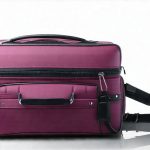Traveling can be an enriching experience, opening doors to new cultures, cuisines, and perspectives. However, for individuals managing chronic health conditions like urological issues, travel planning requires careful consideration beyond simply booking flights and accommodations. A crucial aspect often overlooked is the ability to safely and legally bring necessary prescription medications along on a journey. Urological prescriptions, ranging from those addressing overactive bladder to medications for prostate health or post-surgical needs, are vital for maintaining well-being while away from home. Navigating the complexities of international and domestic travel with these medications can feel daunting, but with preparation and awareness, it’s entirely manageable – and essential for a worry-free trip.
The rules governing medication transport vary significantly depending on the destination, mode of transportation (air, land, sea), and even individual country regulations. What is permissible in one country may be strictly prohibited in another. Understanding these nuances isn’t merely about avoiding legal trouble; it’s about ensuring uninterrupted access to crucial medications that directly impact your health and quality of life during travel. This article aims to provide a comprehensive guide to traveling with prescription urology medications, covering essential considerations for a smooth and safe journey.
Traveling Domestically With Urology Medications
Domestic travel within the United States generally presents fewer hurdles than international journeys when it comes to carrying prescription medications. However, it’s never advisable to assume that everything will automatically be straightforward. The Transportation Security Administration (TSA) has specific guidelines regarding medication transport, primarily focused on security rather than legality (as long as the medication is legally prescribed to you).
Generally, you can travel with your urology medications in their original prescription containers, which clearly identify the drug, dosage, and prescribing physician. It’s highly recommended – even for short trips – to also carry a copy of your current prescription or a letter from your doctor outlining the medication details. This is particularly important if your medication packaging isn’t readily identifiable as a prescription (e.g., compounded medications). While TSA officers aren’t supposed to interfere with legally obtained and properly documented medications, having extra documentation can prevent delays or misunderstandings during screening.
Liquid medications, including some formulations of urological drugs, are subject to the 3-1-1 rule for carry-on baggage: containers must be 3.4 ounces or less, fit in one quart-sized resealable bag, and there’s a limit of one bag per traveler. If you require larger quantities of liquid medication exceeding these limits, it’s best to pack them in your checked baggage. Be mindful that temperature fluctuations in checked baggage can affect certain medications – consider insulated packaging if necessary. You should also check with the airline regarding their specific policies for transporting medications.
International Travel & Urology Medications
International travel introduces a significantly higher level of complexity when it comes to prescription medication. Unlike domestic travel, you’re now subject to the import regulations and healthcare laws of another country. These regulations can vary dramatically from region to region, making thorough research absolutely critical. The US State Department website (travel.state.gov) is an excellent starting point for researching specific country requirements.
Many countries require a letter from your physician detailing your medical condition, medications, dosages, and the necessity of continuing treatment during your trip. This letter should be on official letterhead and may need to be notarized depending on the destination. Some countries also require you to declare your medication upon arrival and may even limit the quantity you can bring in. It’s crucial to understand that what is legal in the United States isn’t automatically legal elsewhere; some medications readily available here are controlled substances or prohibited entirely in other nations.
Additionally, generic versions of medications might not be recognized or available in all countries. It’s prudent to carry your medication in its original packaging with a copy of your prescription and doctor’s letter even if you usually take a generic form. Consider contacting the embassy or consulate of your destination country for clarification on specific regulations; this proactive step can prevent significant problems upon arrival.
Essential Pre-Trip Checklist
Preparation is key to stress-free travel with urology medications. Here’s a checklist to ensure you’ve covered all bases:
- Consult Your Doctor: Discuss your travel plans with your doctor well in advance of your trip (at least 4-6 weeks). Obtain a letter detailing your medical condition, medication list, dosages, and the necessity of continuing treatment abroad. Ask about any potential interactions between your medications and vaccinations required for your destination.
- Research Destination Regulations: Thoroughly research the import regulations and healthcare laws of your destination country regarding prescription medications. The US State Department website is a good starting point, but confirm information with the embassy or consulate if needed.
- Medication Quantity & Packaging: Bring enough medication to last your trip plus extra in case of unforeseen delays. Pack all medications in their original prescription containers and carry a copy of your current prescriptions. If you’re taking liquid medications exceeding TSA limits, plan to pack them in checked baggage with appropriate temperature control if necessary.
- TSA & Customs Documentation: Prepare copies of your prescription, doctor’s letter, and any other relevant documentation for potential inspection by TSA or customs officials.
Dealing With Medication Loss or Theft
Despite meticulous planning, unexpected events can occur during travel. Losing or having your medication stolen while abroad is a serious concern. Having a plan in place to address this situation can significantly reduce stress and ensure you have continued access to necessary treatment.
Firstly, immediately report the loss or theft to local authorities and obtain a police report. This documentation will be helpful when attempting to replace your medication. Contact your insurance provider to see if they offer coverage for lost or stolen medications while traveling. If possible, utilize your doctor’s letter to explain your situation to a local pharmacy, which may (depending on regulations) be able to provide an emergency supply of your medication. Be prepared to show proof of prescription and potentially undergo a medical evaluation.
Consider utilizing online pharmacy services that ship internationally – though this can take time and isn’t always feasible in emergencies. It’s also wise to share a copy of your medication list with a trusted contact at home who can assist you if needed, including contacting your doctor or insurance provider on your behalf.
Navigating Airport Security & Customs
Airport security and customs checkpoints are potential points of concern when traveling with prescription medications. Be prepared for scrutiny and cooperate fully with officials. Keep your medications readily accessible in your carry-on baggage to facilitate inspection.
When going through TSA screening, proactively inform the officer that you’re carrying medication. Show them your prescription or doctor’s letter if requested. Avoid making jokes or appearing evasive, as this could raise suspicion. At customs, declare any medications you are bringing into the country if required by local regulations. Be prepared to present your documentation and answer questions about your medical condition.
Remember, honesty and transparency are key. While TSA focuses on security, customs officials are primarily concerned with enforcing import laws. Following these guidelines can help ensure a smooth passage through both checkpoints and avoid unnecessary delays or complications during your journey.
Disclaimer: This article provides general information and should not be considered medical advice. Always consult with your healthcare provider and relevant authorities for specific guidance regarding travel with prescription medications. Regulations are subject to change, so staying informed is essential.





















